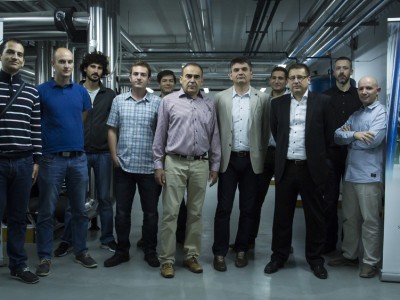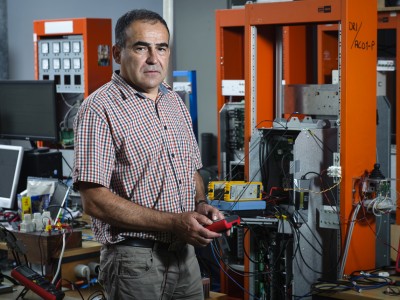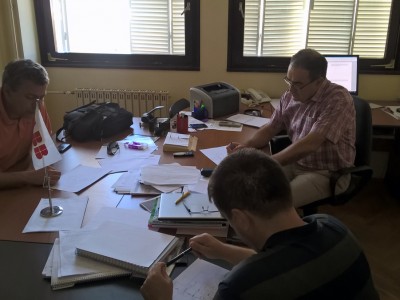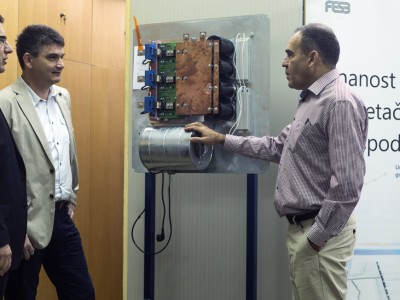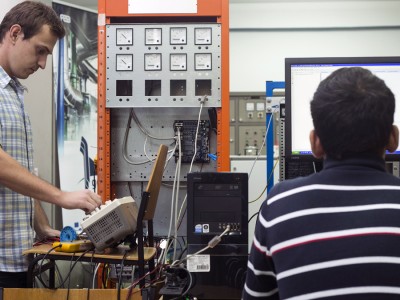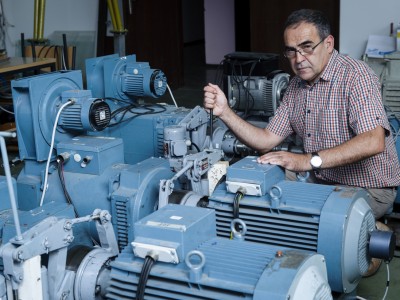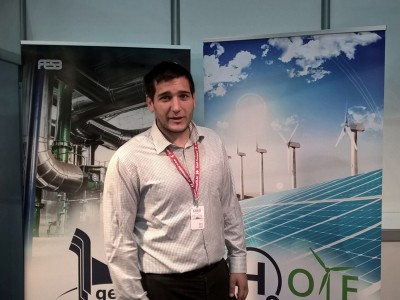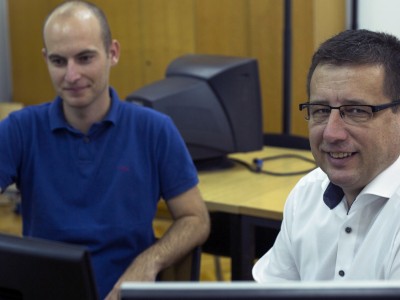Project Overview
“Safer and more efficient cogeneration / trigeneration plants” research and development project is financed from the European fond for regional growth 2007. – 2013., from Croatian national program “RC.2.2.08 Jačanje kapaciteta za istraživanje, razvoj I inovacije”. This is a collaborative project between Faculty of electrical engineering, mechanical engineering and naval architecture and company Banko d.o.o. that uses R&D projects to increase its own competitiveness on global market.
This project is about improving efficiency and safety protocols of cogeneration and regeneration plants where research is focused on improving design of main components and development of advanced control system. The research course will result in construction of functional prototypes of frequency converter, automated mathematically enhanced control system and absorption heat pump for refrigeration. Built components are to be verified and tested in real environment, on ORC cogeneration facility built by Đuro Đaković Kotlovi d.o.o. according to Banko d.o.o. blueprints that has maximum output heat energy of 500 kW heat energy and 100 kW of electrical power.
With approved test results further product development and commercialization of project outputs can commence.
Research objectives
The project goal is to boost electric efficiency and economic value of cogeneration / trigeneration plants, whereas we have defined 3 main research objectives:
1. Power electronic development (frequency converter)
The objective is to develop a frequency converter that will enable speed control of high speed generator (20.000 rev per second) and energy-transfer to the grid. Two frequency-converter models are developed. These have same output module but differ in generator side. One has Diode rectifier input module and other has three phase IGBT rectifier module.
Both moduls of 100 kW nominal power are designed and constructed trough the Projects, and are tested in full range on motor-generator group consisting of asynchronous and permanent magnet spindle.
The reserch goal is to enhance control functions of frequency converter and minimize energy losses due to high switching frequency using modern microprocessor and smart semiconductor control techniques.
2. Development of mathematically based cogeneration / trigeneration control system
Research is based on mathematical process modeling of ORC thermodynamic process and control systen development. The result is process model that is used to test and develop advanced control algorithms in order to maximize output power of installed cogeneration unit and enhance plant safety procedures.
3. Exploring technical parameters of cogeneration / trigeneration usage in residential area
While cogeneration is common among industrial sites, in residential areas cogeneration facilities have small level of impact due to the fact that heat is distributed on large area and that it is often not rentable to install plants in such locations. Increasing revolution speed and scaling down cogeneration modules may enable such usage. The third research objective is aimed to explore such possibilities using real production data from project partner Banko d.o.o. and output results from cogeneration plant for making approximations and deliver science paper on the subject.
Horizontal objectives
1. Increasing impact of science on industry development
By directing research activities to industry related topics we are building additional capacities for industry related research and are increasing number of scientist in real – production sector. Project, directly contributes with researchers hired on this development project (10), but it also deploys horizontal activities like directing student graduate theses and introducing new education curriculums based on applied science research, thus enabling further impact of the project on science-industry collaborative development.
2. Increasing cooperation level between science institutions and industry
As project result, Office for industry collaboration and EU funds is founded within the Faculty, with objective to remove technical and administrative barriers for collaboration projects and actively promotes the same within research groups and industry subjects. The impact is creating long – term policies that shall be guidelines for future project and developing large network enabling more fluid transfer of knowledge and technology between science institutions and industry.
3. Raising technical knowledge and skills of young scientist for research and development
On project, in development teams, we have combination of young scientists and the more experienced mentor, resulting in knowledge transfer and raising capacities of young researchers for research and development. As said, project shall raise technical and practical knowledge of this group, and shall also increase skills of yet to be scientists by introducing project results into the student curriculums and directing students to choose applied research graduate thesis. All of the upper mentioned activities are part of project, aimed to create stabile platform for technology transfer operations and to strengthen the research capacities of young scientists.
4. Contributing to energy efficient society and preservation of nature
The project main topic is developing more efficient way of harvesting energy from waste heat, by doing so we are directly contributing to higher energy efficiency and preservation of nature. The products developed are by construction and application energy efficient ant their usage in other applications will also yield in energy preservation and reducing the CO2 footprint.


